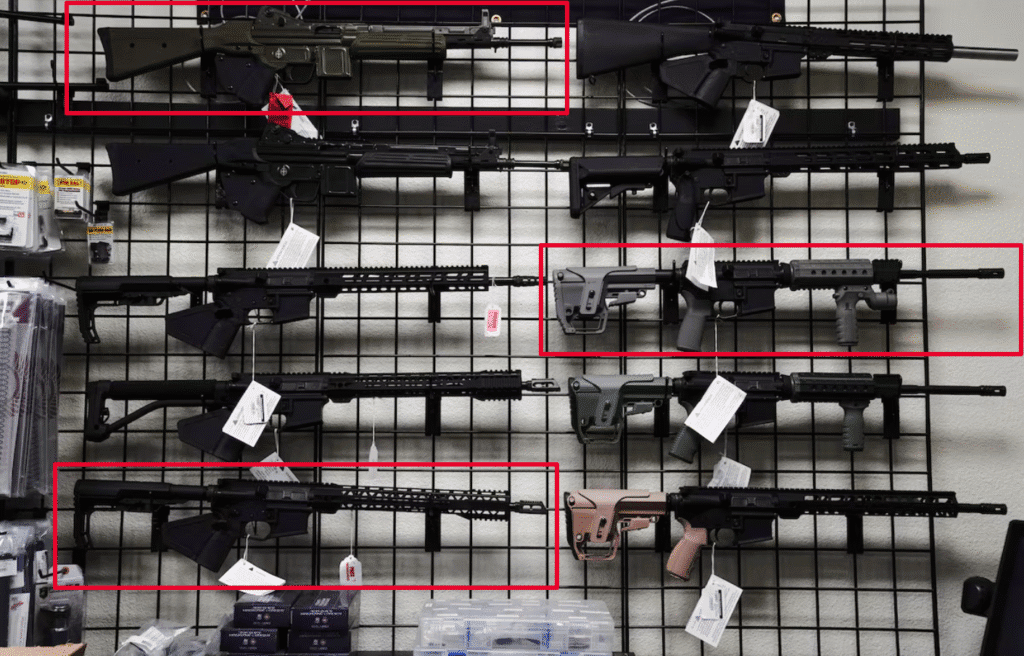On Thursday, a divided federal appeals court ruled that California’s pioneering legislation mandating background checks for firearm owners seeking ammunition is unconstitutional, thereby infringing upon the Second Amendment’s right to bear arms.

With a 2-1 decision, the 9th U.S. Circuit Court of Appeals in Pasadena, California, upheld a lower court judge’s permanent injunction against enforcing the law.
Circuit Judge Sandra Ikuta asserted that the law “significantly limits” individuals’ right to possess and bear arms.
Additionally, the California Attorney General argued that the state’s firearm regulations were inconsistent with the country’s historical tradition of firearm regulation, as required by the 2022 landmark U.S. Supreme Court decision, New York State Rifle and Pistol Association v. Bruen.
“By subjecting Californians to background checks for all ammunition purchases, California’s ammunition background check regime infringes upon the fundamental right to keep and bear arms,” Ikuta wrote.
California officials expressed disappointment.
“Today’s decision is a significant setback for the progress California has made in recent years to enhance the safety of its communities from gun violence,” Democratic Governor Gavin Newsom stated in a statement.
A spokesperson for California Attorney General Rob Bonta, a Democrat, stated, “Our families, schools, and neighborhoods demand nothing less than the most fundamental protection against preventable gun violence. We are diligently exploring our legal avenues to address this issue.”
All three judges on Thursday’s panel were appointed by Republican presidents; however, appointees of Democratic presidents constitute a majority on the 9th Circuit Court of Appeals.
California has the option to request an 11-judge appeals court panel or the Supreme Court to review the decision.
“OVERREACHING”
The plaintiffs included Kim Rhode, a three-time Olympic gold medalist in shooting events, and the California Rifle & Pistol Association.
In a joint statement, the group’s president and general counsel, Chuck Michel, characterized the decision as a triumph against “overreaching government gun control measures.” Rhode, on the other hand, celebrated it as a significant victory for all gun owners in California.
Numerous gun rights organizations and 24 predominantly Republican-led U.S. states filed briefs supporting the law’s opponents, while a few gun safety groups aligned with California.
Janet Carter, managing director of Second Amendment litigation at Everytown Law, stated in a statement that California’s law imposed a “minimal burden,” including a $1 fee and a one-minute delay, for most firearms owners seeking ammunition.
“Background checks for ammunition sales are common sense,” she asserted.
In 2016, voters approved a California ballot measure requiring gun owners to undergo initial background checks to purchase ammunition and obtain four-year ammunition permits.
Legislators subsequently amended the measure to mandate background checks for each ammunition purchase.
California reported receiving 191 reports in 2024 of “armed and prohibited individuals” who were prevented from purchasing ammunition through background checks.
Dissenting Opinion: The Injunctions Are Not ‘Heavy-Handed’
U.S. District Judge Roger Benitez of San Diego issued an injunction in favor of gun owners, having previously ruled in several cases on their behalf. However, an appeals court panel temporarily halted the injunction during California’s appeal.
California argued that several historical firearms restrictions supported the background checks, including colonial-era regulations requiring licenses for gunpowder production, the disarmament of individuals who refused to take “loyalty oaths” around 1776, and late-19th-century laws mandating government permission for concealed weapon carry.
Circuit Judge Jay Bybee dissented from Thursday’s decision, asserting that the majority effectively declared unlawful any limits on ammunition sales, disregarding the rarity of identical historical analogies.
Bybee argued that the law is not “the kind of heavy-handed regulation that meaningfully constrains the right to keep and bear arms.”
President George W. Bush appointed Ikuta and Bybee to the bench, while President Donald Trump appointed Circuit Judge Bridget Bade, who joined the majority on Thursday.
The case is Rhode v. Bonta et al., No. 24-542, 9th U.S. Circuit Court of Appeals.
